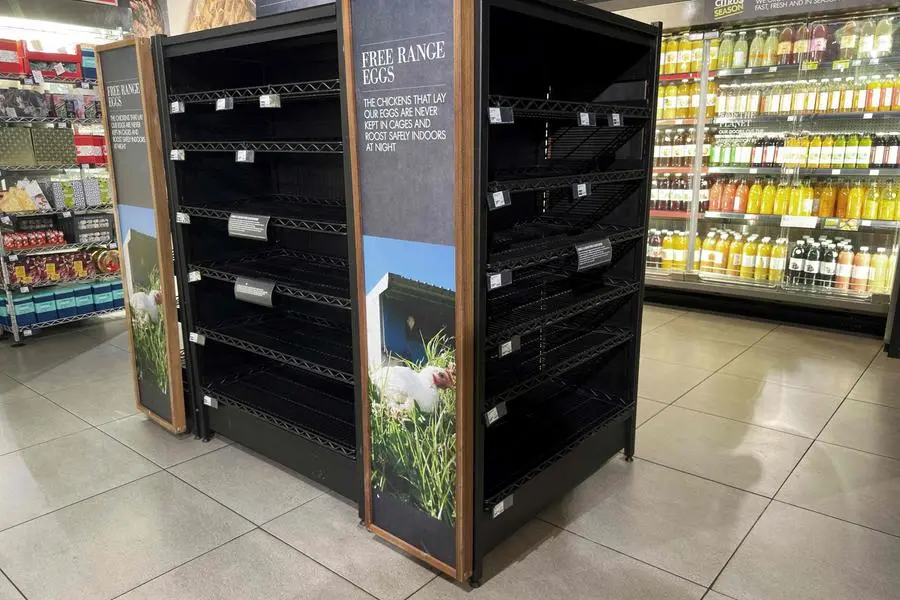PHOTO
Supermarket retailers in South Africa said on Thursday they were grappling with an egg shortage triggered by a major bird flu outbreak that has seen shelves going empty across the country in recent weeks.
Grocery store chains said they have been forced to hike prices and ration eggs, as producers contend with the disease, which has caused the loss of millions of chickens since April.
"We have implemented a limit on whole egg purchases in all... stores and online to 6 eggs per customer," retailer Woolworths said.
The company was working with its farmers "to ensure regular supply returns soonest".
Only two lonely six-egg cartons were left on the shelves of one of the retailer's stores in an affluent Johannesburg suburb on Thursday morning.
Shoprite, another major supermarket chain, told AFP it had also been affected.
"We continue to work closely with our egg suppliers, securing as much stock as possible and utilising our supply chain to transport it to regions experiencing shortages," it said.
One of the continent's major poultry producers, South Africa reported the first bird flu cases in commercial farms in April, according to an industry group.
In some stores prices have doubled, impacting cafés and restaurants and families.
"(The) cost of eggs has risen to extreme levels," said Blessing Bomani, a manager at Coco Safar, a small French-style café in Johannesburg.
"It's affecting our business because we can't just hike up our prices overnight... our suppliers don't have eggs and when we go to the supermarkets, they tell us we can only buy one crate of eggs, which is nothing for us".
Last month, the South African Poultry Association (SAPA) said the nation was contending with two different strains of the virus, the infamous H5N1 and a new strain identified as H7N6.
The virus has typically been confined to seasonal outbreaks, but since 2021 cases have emerged year-round, and across the globe, leading to what experts say is the largest outbreak ever seen.
SAPA said the number of avian flu cases in South Africa this year was higher than in any year since the first outbreaks were reported in commercial farms in 2017.




















